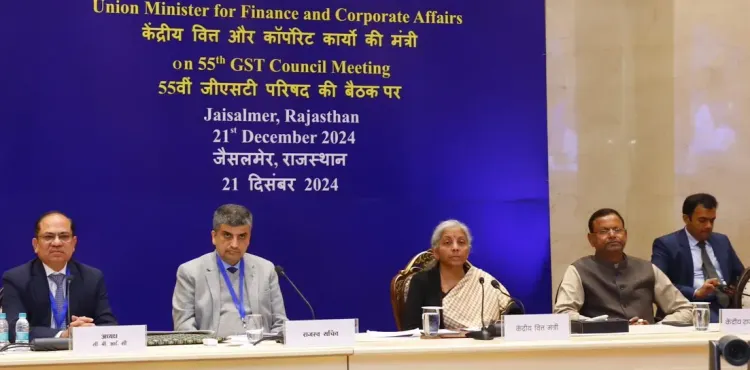Why Do 85% of Indian Businesses Trust GST Amid Ongoing Reforms?

Synopsis
Key Takeaways
- 85% of Indian businesses have confidence in GST as of 2025.
- Confidence increased from 59% in 2022.
- Key drivers include digitization and improved compliance.
- 2024 saw significant GST reforms enhancing clarity.
- Businesses seek further reforms for GST 2.0.
New Delhi, June 23 (NationPress) Confidence in the Goods and Services Tax (GST) has seen a steady rise from 59% in 2022 to 85% in 2025, driven by enhanced compliance maturity, digitisation, and proactive engagement from policymakers, according to a report released on Monday.
As India celebrates eight years since the implementation of the GST, a survey by Deloitte India reveals strong support for this tax reform among businesses of various sizes and sectors. The participants expressed a robust desire to advance to the next phase of GST reforms, aligning with the vision of a $5 trillion economy.
“The eighth anniversary of the GST regime marks a significant milestone, with Indian businesses demonstrating ongoing optimism towards the tax framework,” stated Gokul Chaudhri, President of Tax at Deloitte India.
He highlighted that the automation of tax processes, particularly concerning e-invoicing and return auto-population, continues to provide significant benefits, and that the industry appreciates the government's collaborative efforts in addressing issues through timely clarifications.
The year 2024 was pivotal for GST reforms, featuring the streamlining of investigation processes, clarifications around valuation, measures to reduce unnecessary litigation, export-focused clarifications, initiatives to alleviate working capital concerns, and a decrease in the amount of pre-deposits.
“In this context, to fully achieve the aims of GST 2.0, India needs to prioritize progressive reforms, AI-driven compliance tools for data utilization, effective grievance redressal systems, and the establishment of a more agile, inclusive, and positively transformative tax ecosystem,” remarked Mahesh Jaising, Partner and Indirect Tax Leader at Deloitte India.
While most respondents acknowledged improvements in clarity due to GST circulars, an increasing majority (67% in 2025 compared to 55% in 2024) points to persistent challenges in ground-level implementation.
The survey put forth key recommendations for the GST Council, with a primary focus on prioritizing export liberalization, which has shifted from the fourth position last year to the top priority for 2025.
This significant increase underscores a strategic shift in industry expectations and a collective push for enhanced exports from India. The survey also reiterates its call for rationalizing GST rates throughout the supply chain and advocates for a tailored policy approach regarding MSMEs.
“While progress has been commendable, the expectations of Indian businesses for GST 2.0 are growing, focusing on key areas such as dispute resolution, audit simplification, and GST rate rationalization,” Jaising added.
The survey is based on 963 responses from senior corporate executives across eight different industries.
India’s gross GST collection for May 2025 totaled ₹2.01 lakh crore, representing a 16.4% increase compared to ₹1.72 lakh crore collected in May 2024.









